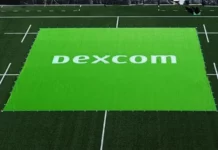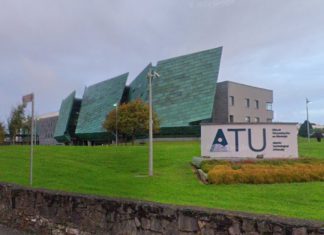
Galway City householders are being urged to bring their batteries, electrical, and electronic waste to a free collection day to help the county meet national e-waste recycling targets for 2024.
The event, hosted by WEEE Ireland in partnership with The University of Galway, takes place on Thursday, October 31 from 10am-4pm at the Orbsen Building Car Park, using the Newcastle Road entrance, beside the Kingfisher.
Anything with a plug, battery or cable can be recycled for free on the day, including old washing machines, TVs, toasters and kettles, electronic tools and toys, cables, IT equipment, mobile phones, remote controls, batteries, including farm fence batteries, and even watches.
“In Galway, and across Ireland, we are buying more electrical goods than ever – with people purchasing an average 22kg per head in 2023 compared to 16kgs just five years ago,” said WEEE Ireland CEO Leo Donovan.
“Shopping stats show a surge in spend on new electrical devices like mobile phones, computers, small kitchen appliances and white goods.
“With old items still lying around many households we want to offer the opportunity to recycle these for free.
“People in Galway have contributed greatly to e-waste recycling every year, with 2,748 tonnes of electrical waste collected in the county in 2023, and we want to encourage that trend.”
9.9kg of e-waste was recycled per person in Galway last year – falling short of the national average of 10.33kg per person.
WEEE Ireland warns that the nation needs to meet new forthcoming EU targets to recycle at least 25% of our annual consumption of critical raw materials from e-waste.
“An average of 80% of all e-waste that we collect is recovered for use again in manufacturing through both indigenous operators and specialist processors in Europe,” said Mr. Donovan.
“Most end-of-life products contain metals and minerals in higher concentrations than primary resources.
“These stocks of resources are the urban mines of the future, so our recycling efforts can have a significant impact on the environment.”
In 2023, the equivalent of 222,852 tonnes of CO2 emissions were avoided by recycling e-waste through the WEEE Ireland Scheme as opposed to landfilling. That is the equivalent of the annual carbon consumption of 4,457 hectares of trees.
WEEE Ireland accounts for over two thirds of all national waste electrical and electronics collection activity on behalf of 1,355 producer members.
These free events are in partnership with The University of Galway.
“Recycling e-waste is incredibly beneficial for both the environment and the economy,” Lorraine Rushe, Environmental Health & Safety Manager at The University of Galway.
“Together, we are diverting waste from landfill, recovering raw materials for reuse and ensuring hazardous materials are safely and responsibly disposed of.
“We look forward to working with WEEE Ireland and Galway householders to hopefully recycle a record-breaking amount of electronic waste in 2024.”











